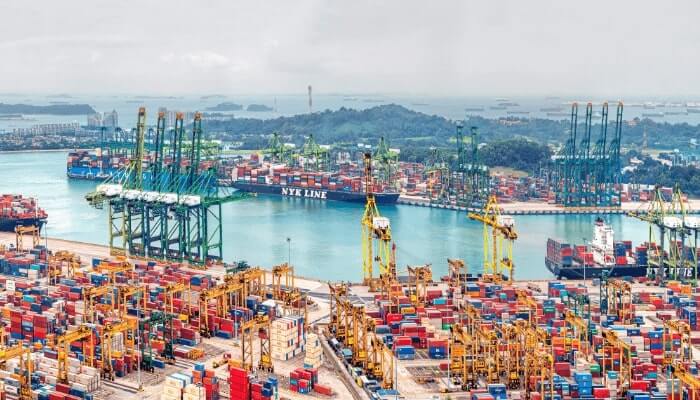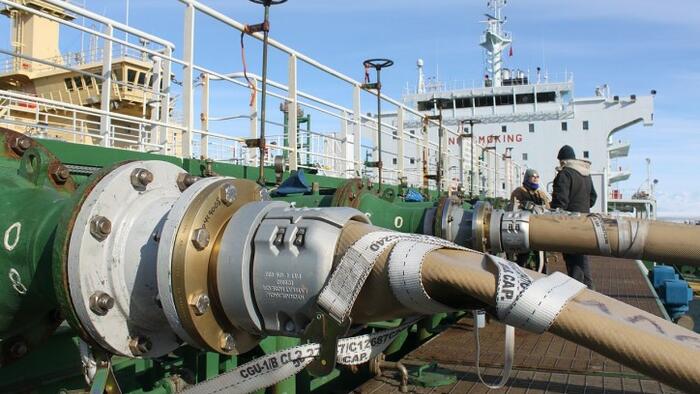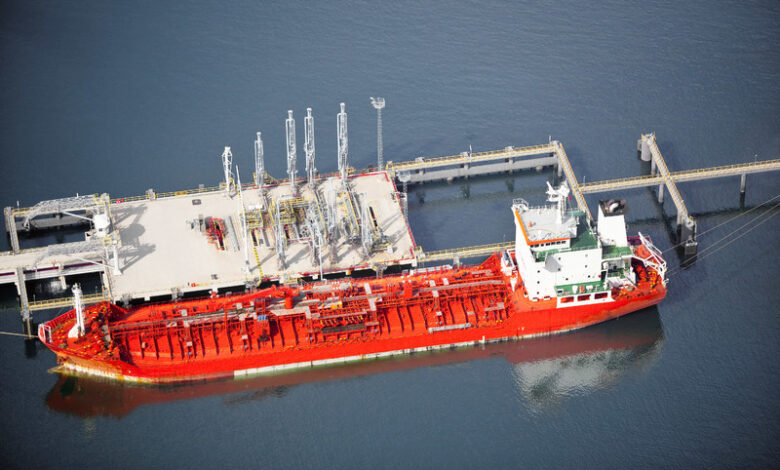Singapore Bunker Contamination Reports

April 13, 2022
Singapore declares Glencore as original supplier of contaminated HSFO
According to the Maritime and Port Authority, global commodities giant Glencore was the initial supplier of tainted HSFO in Singapore that caused engine difficulties for scores of bunker in recent weeks. The MPA was initially made aware of the situation on March 14, according to an emailed statement sent on Wednesday.
Numerous testing companies have flagged the issue of chlorinated hydrocarbons being discovered in Singapore HSFO samples in recent weeks, with some drawing analogies to the 2018 Houston poisoning situation. “Preliminary MPA inquiries found that the impacted gasoline – a mixed product – was provided by Glencore Singapore Pte Ltd (Glencore)” the organization stated in a statement.
“Glencore notified MPA that, after getting complaints of its gasoline being contaminated, Glencore decided to test the fuels given by its suppliers utilized in its mixed product, and found that one of them, imported from overseas, had around 15000 ppm of chlorinated organic compounds.”
“When the testing began, Glencore had already sold a portion of the impacted fuel to PetroChina International Pte Ltd, which had in turn provided ships in the Port of Singapore.” In Singapore, Glencore and PetroChina delivered gasoline to around 200 ships. According to the MPA, around 80 of these have suffered fuel pump and engine difficulties.

April 14, 2022
Singapore HSFO contamination seen in Houston
The contamination of HSFO in Singapore had the possibility of spreading to Houston. In recent weeks, many testing firms have reported discovering chlorinated compounds in Singapore HSFO samples.
Singapore’s MPA announced on Wednesday that Glencore was the original supplier, with more deliveries than PetroChina, around 200 ships getting the gasoline in total, and approximately 80 reporting difficulties with fuel pumps and engines subsequently. This issue was discovered in Houston as well, according to the maritime news site TradeWinds on Wednesday.
According to the investigation, contaminated bunkers were provided by Glencore in Houston as well, and they were discovered on board at least one vessel. When Ship & Bunker contacted Glencore on Tuesday, a spokesman declined to comment on the story. If the contamination has extended to Houston, the situation is likely to take considerably longer to remediate than in a local emergency.
April 20, 2022
IBIA seeks to track the spread of Contaminated HSFO from Singapore
IBIA, the bunker industry association, has urged its members to assist them in tracking the possible spread of contaminated HSFO delivered in Singapore during the last two months to other marine fuel markets around the world.
Last week, Singapore’s MPA stated that over 200 ships have received HSFO including chlorinated hydrocarbons in recent weeks, with approximately 80 reporting difficulties with gasoline pumps and engines. IBIA is currently attempting to prevent the situation from escalating into a global disaster on the size of the contamination that began in Houston in 2018.
“There are two basic ways in which the chlorinated hydrocarbon issue in the bunker industry might expand; Either from the cargo carrying the contaminated HSFO being moved someplace else and mixed in an attempt to dilute the chloride concentration or from attempts to do the same with debunkered tainted fuel,” IBIA stated in an email to members on Tuesday.
“IBIA consequently requests that relevant stakeholders notify us of any ports where ships have or will debunker HSFO contaminated with chlorides, as well as if you have reason to assume cargoes carrying chloride contaminated HSFO are en route to certain ports.”

April 26, 2022
Singapore bad bunkers
This year’s event in Singapore bears many similarities to the 2018 ‘bad bunker’ disaster near Houston, which damaged over 200 boats. Among the similarities is that many wrongly thought the bad gasoline fulfilled the ISO 8217 standard since it fit the ISO 8217 table criteria.
“However, the purchasers of those contaminated bunkers were allowed to lodge a claim since the fuel did not fulfill the entire text of 8217 – it was unfit for use,” Simms explained. “Today, there are still a few cases concerning the Houston 2018 situation. There will now be suits coming out of the Singapore situation. One of the questions will be about the source of the COCs,” he added.
More testing required
With the industry having had two significant contamination incidents in recent memory, the question of whether testing to 8217 criteria is sufficient inevitably arises. Many people believe it is not, and they are now asking for a more advanced study of their fuels, especially using gas chromatography mass spectrometry (GCMS) testing.
GCMS provides a significantly more complete understanding of any possible difficulties with marine fuel, and a recent survey by brokerage NSI revealed substantial industry support for making such testing compulsory.
The disadvantage is that GCMS testing takes longer and costs more than standard 8217 testings. To combat this, worldwide testing company VPS launched a chemical screening service that employs GCMS-Head Space as a detection tool.
“This strategy is quite similar to what health organizations throughout the world used when they launched quick antigen testing for COVID,” said Steve Bee, global commercial and business development director at VPS.
“This protection primarily consists of a mechanism for screening maritime fuel in a very short period of time.” If pollutants are found, further complicated testing is performed. “The pre-burn stage of testing may detect more than 70% of all chemical pollutants that may be present in the fuel.” This contains styrene, DCPD, indene, and other chemicals, as well as the chlorinated hydrocarbons recently discovered in Singapore fuels.”
Apart from big occurrences like the one that occurred recently in Singapore, bunker purchasers should be increasingly concerned about the quality of their fuel as the price of oil rises.
Click here to join our Telegram chanel
You will get information, news, and support related to Merchant Navy.
